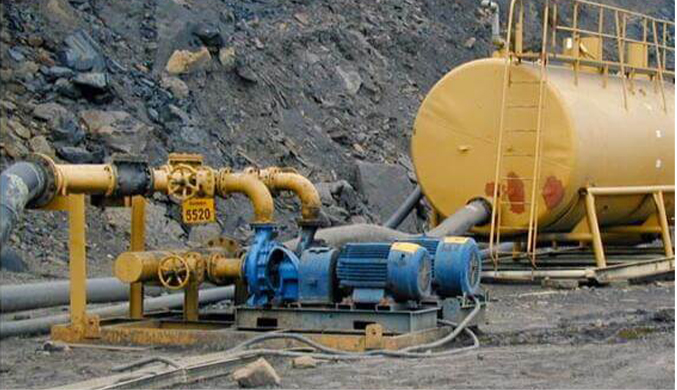Arabic
- Afrikaans
- Albanian
- Amharic
- Arabic
- Armenian
- Azerbaijani
- Basque
- Belarusian
- Bengali
- Bosnian
- Bulgarian
- Catalan
- Cebuano
- Corsican
- Croatian
- Czech
- Danish
- Dutch
- English
- Esperanto
- Estonian
- Finnish
- French
- Frisian
- Galician
- Georgian
- German
- Greek
- Gujarati
- Haitian Creole
- hausa
- hawaiian
- Hebrew
- Hindi
- Miao
- Hungarian
- Icelandic
- igbo
- Indonesian
- irish
- Italian
- Japanese
- Javanese
- Kannada
- kazakh
- Khmer
- Rwandese
- Korean
- Kurdish
- Kyrgyz
- Lao
- Latin
- Latvian
- Lithuanian
- Luxembourgish
- Macedonian
- Malgashi
- Malay
- Malayalam
- Maltese
- Maori
- Marathi
- Mongolian
- Myanmar
- Nepali
- Norwegian
- Norwegian
- Occitan
- Pashto
- Persian
- Polish
- Portuguese
- Punjabi
- Romanian
- Russian
- Samoan
- Scottish Gaelic
- Serbian
- Sesotho
- Shona
- Sindhi
- Sinhala
- Slovak
- Slovenian
- Somali
- Spanish
- Sundanese
- Swahili
- Swedish
- Tagalog
- Tajik
- Tamil
- Tatar
- Telugu
- Thai
- Turkish
- Turkmen
- Ukrainian
- Urdu
- Uighur
- Uzbek
- Vietnamese
- Welsh
- Bantu
- Yiddish
- Yoruba
- Zulu
Telephone: +86 13120555503
Email: frank@cypump.com
سبتمبر . 28, 2024 10:05 Back to list
Comparing Screw Pumps and Centrifugal Pumps for Chemical Applications and Their Benefits
Understanding the Dynamics Screw Pumps vs. Centrifugal Chemical Pumps
In the intricate world of fluid dynamics, the choice of a pump can drastically affect the efficiency and effectiveness of industrial operations. Two common types of pumps used in chemical processes are screw pumps and centrifugal pumps. Each type presents unique advantages and disadvantages, making understanding their functionalities essential for engineers and operators alike.
The Basics Screw Pumps
Screw pumps operate on a simple principle they use one or more screws to move fluids along the axis of the screws. This positive displacement mechanism allows screw pumps to generate a consistent flow rate, regardless of pressure changes within the system. Because of their design, screw pumps can handle a wide range of viscosities—from low to high—making them versatile for many applications, including the transportation of heavy oil, viscous liquids, and even slurry-like materials.
One of the standout features of screw pumps is their ability to maintain a smooth and steady flow, which is critical in processes where fluid turbulence can lead to undesirable reactions or shear forces. This makes screw pumps particularly desirable in the chemical industry, where precise control over flow rates is crucial for ensuring quality and consistency in the final product.
The Power of Centrifugal Pumps
In contrast, centrifugal pumps utilize rotational energy from a motor to impart velocity to the fluid being pumped. The fluid enters the pump through the impeller, which increases its energy through centrifugal force before moving it out through the discharge. This delivery mechanism allows centrifugal pumps to be highly efficient in low-viscosity and clean liquids.
Centrifugal pumps are popular in various applications, including water supply, chemical processing, and wastewater treatment. Their design allows for high flow rates and the ability to manage simple systems with minimal maintenance. However, they are generally less effective when pumping highly viscous or abrasive fluids, as increased viscosity can lead to a drop in efficiency and potential damage to the impeller.
Comparing Performance in Chemical Applications
similar titles to screw pump centrifugal chemical pump quotes could ...

When evaluating screw pumps versus centrifugal pumps for chemical processing, several factors come into play. For instance, the viscosity of the fluid is a primary consideration. In situations where the fluid is highly viscous, screw pumps excel because their positive displacement mechanism is capable of handling such materials without significant loss of performance.
Conversely, if the fluid is less viscous, centrifugal pumps may offer a more cost-effective solution. They typically have a simpler design and lower upfront costs compared to screw pumps, especially in applications that do not require stringent flow rate control.
Another significant factor is maintenance. Screw pumps, while robust, can sometimes require more regular maintenance due to the wear and tear on the screws and seals. Centrifugal pumps tend to have fewer parts that experience direct contact with the fluid, which can lead to less wear over time and simpler maintenance routines.
Industry Considerations
In industries such as oil and gas, pulp and paper, and chemical manufacturing, the choice between screw pumps and centrifugal pumps can greatly influence operational efficiency. Each industry may favor one pump type over the other depending on specific application needs. For example, screw pumps might be preferred in drilling applications for oil extraction due to their ability to handle variations in flow and viscosity effectively.
On the other hand, centrifugal pumps may be sufficient for applications involving the transfer of clean, low-viscosity liquids, where the cost-effectiveness and ease of maintenance outweigh the need for precision.
Conclusion
Ultimately, the choice between screw pumps and centrifugal pumps is not a one-size-fits-all decision. Understanding the specific requirements of your application—such as fluid properties, required flow rates, and maintenance capabilities—can help you make an informed decision that enhances efficiency and productivity in chemical processing operations. Both screw pumps and centrifugal pumps hold their merits; knowing when to utilize each can lead to significant improvements in your fluid handling systems.
-
Reliable Non-Clog Sewage Pumps with GPT-4-Turbo Tech
NewsAug.04,2025
-
High-Performance Air Pumps for Sand & Gravel | Efficient Transport
NewsAug.03,2025
-
ISG Series Vertical Pipeline Pump - Chi Yuan Pumps Co., LTD.|Energy Efficiency, Corrosion Resistance
NewsAug.03,2025
-
ISG Series Pipeline Pump - Chi Yuan Pumps | Energy Efficiency&Compact Design
NewsAug.03,2025
-
ISG Series Vertical Pipeline Pump - Chi Yuan Pumps Co., LTD.|High Efficiency, Low Noise, Durable
NewsAug.02,2025
-
ISG Series Vertical Pipeline Pump - Chi Yuan Pumps | High Efficiency, Low Noise
NewsAug.02,2025










